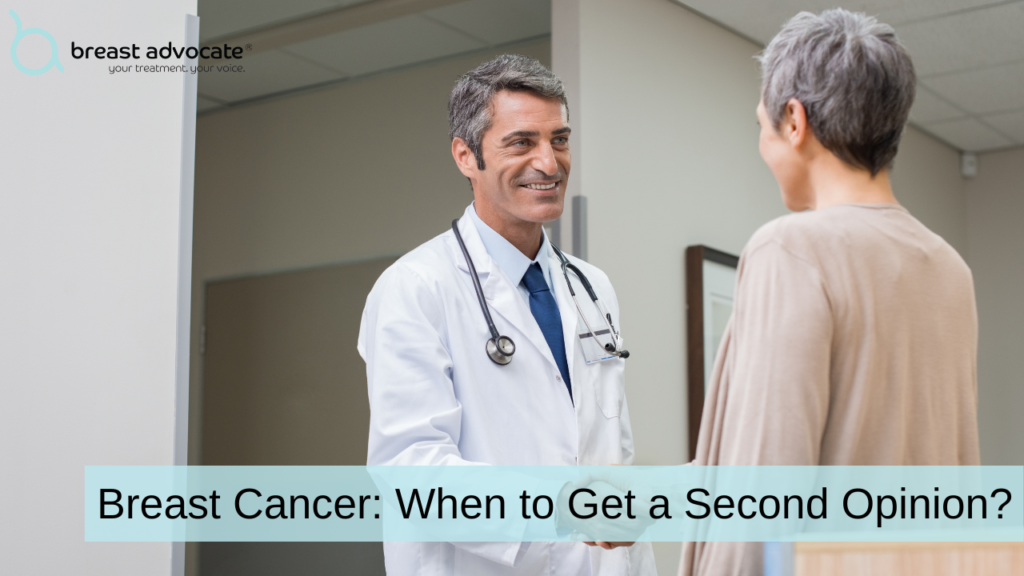Breast Cancer: When to Get a Second Opinion?

Considering a second opinion? It is important to know you can get a second opinion at any time during your treatment. This can be very helpful to ensure you are as comfortable as possible with your treatment plan. If you are considering getting another opinion however, we recommend you do so at the beginning of your cancer care if possible to allow for a change in treatment if needed.
“Anytime a patient is given a diagnosis that is maybe not the most common, or maybe has some intricacies or nuances, then it’s probably a good idea to meet with multiple physicians who can give opinions on treatment plans for that unique diagnosis,” says Dr. Jessica Burns, a breast cancer surgeon for ProMedica, and Dr. Christopher Lutman, a gynecologic oncologist with Mercy Health in a recent article.
At first, it might feel like you are doubting your doctor’s judgment, however, it’s a fairly common request that doctors are used to hearing.
When to Consider a Second Opinion
- After biopsy results: The biopsy involves taking a small sample of the breast mass or area of concern to examine it for malignant (cancerous) cells. Any discrepancy by the pathologist who interprets the results could make a difference in your diagnosis and the treatment approach the is recommended. When considering a second pathology opinion, check the service is “in-network” and covered by your insurance plan.
- Before surgery: Getting a second opinion from another breast surgeon or plastic surgeon can be helpful if you are unsure about the type of breast cancer surgery or reconstruction you should have. The decision between having a lumpectomy or mastectomy, and equally choosing aesthetic flat closure or breast reconstruction, can be extremely personal. There is often no “right” or “wrong”; only what is best for you. Given the variety of breast reconstruction options available, it is a good idea to consult with more than one plastic surgeon if you are considering reconstruction, especially if you are considering of the more complex procedures like the DIEP flap. Just as some breast surgeons don’t offer oncoplastic surgery at the time as a lumpectomy, some plastic surgeons don’t offer microsurgical flap options.
- When planning treatment after surgery: Treatment options after surgery can include chemotherapy, radiation therapy, hormonal therapy, and targeted therapies. The best treatment for you will depend on the details of your diagnosis, the pathology results from surgery, and your individual needs. Sometimes, the recommendations can be very clear-cut based on well-established guidelines. Occasionally, the situation isn’t so clear and a second opinion from another specialist can be very helpful to help you navigate your options.
- During treatment: If the treatment plan isn’t working, you have treatment-related issues your doctor can’t resolve, or you aren’t comfortable with an aspect of your care, it’s likely worth seeking a second opinion.
- After treatment: Even if you’ve already finished treatment, you may still benefit from an alternative perspective when it comes to a survivorship care plan. Unfortunately, it’s after treatment that many patients feel the most lost. If you don’t feel you have the support or guidance you need from your medical team, it may be beneficial to get a second opinion.
Helpful Resources
If you are already confident with your original physician’s/team’s treatment recommendations, that’s great! Other resources you can explore that can provide additional support include reputable online support groups and the Breast Advocate App.






